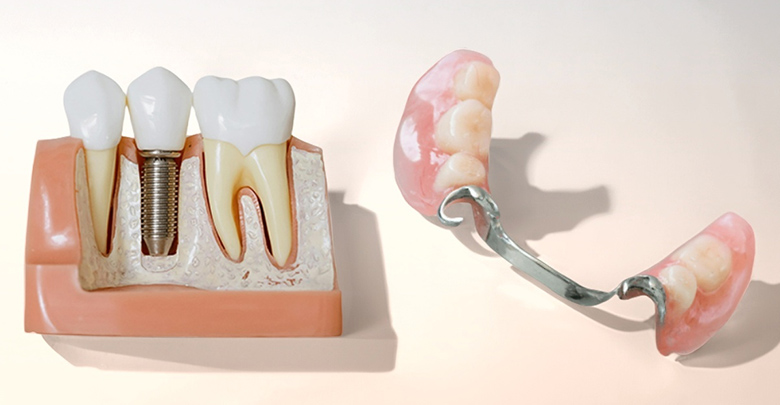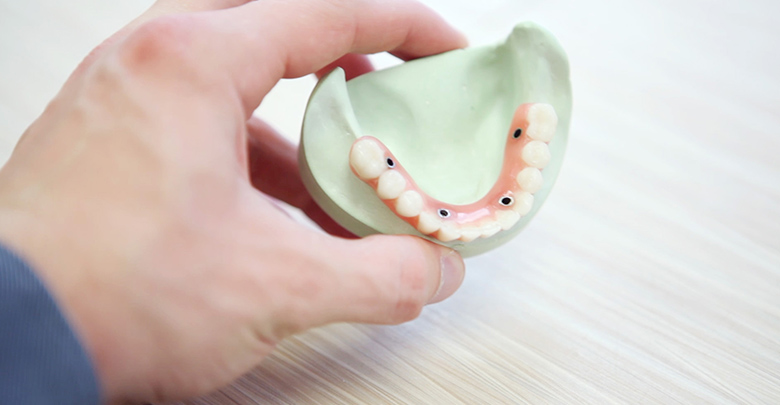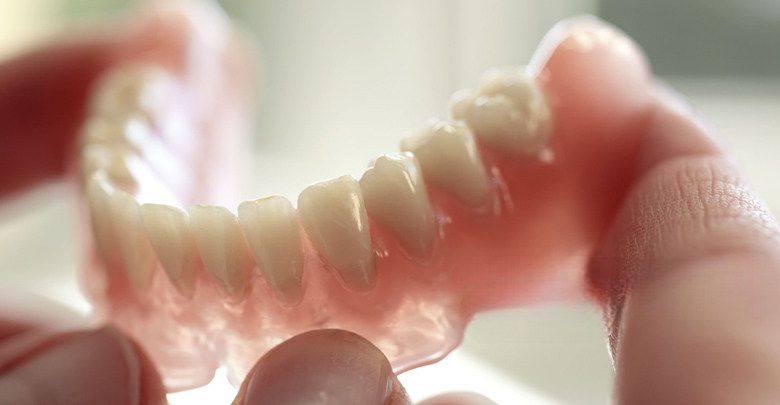
Tooth loss is a common condition and can certainly impact your daily life, such as feeling afraid to laugh and being unable to eat your favorite foods. When it comes to tooth restoration, how should you choose between removable dentures and dental implants? This article will provide a comprehensive understanding of their advantages and disadvantages.
Table of Contents
1. Advantages and Disadvantages of Removable Dentures
1.1 Advantages:
1.1.1 They are significantly cheaper than dental implants, typically one-tenth the cost.
1.1.2 They are widely applicable. Whether you are missing one tooth, several teeth, or even all of your teeth, removable dentures are an option. These are called partial dentures and full dentures, respectively.
1.1.3 No surgery is required. A simple impression is taken by the doctor, which is then designed by a technician and finally manufactured. It also does not damage adjacent teeth and is a non-invasive treatment.
1.1.4 The production time is short, generally only three days, and the shipping time is two to three days. Therefore, you can generally wear your custom removable dentures a week after the impression is taken.
1.2 Disadvantages:
1.2.1 Digestion Impairment and Reduced Chewing Efficiency: Wearing removable dentures often causes a strong foreign body sensation, which reduces chewing efficiency and makes you feel like your mouth no longer belongs to you. They cannot properly grind food, which affects digestion. Of course, you can no longer eat hard or sticky foods, as these can easily cause your dentures to dislodge.
1.2.2 Poor Retention: Removable dentures rely primarily on the base or clasps for retention, making them prone to loosening, displacement, and even dislodging.
1.2.3 Other Damage to the Oral System: Partially bonded dentures, which rely on clasps for retention, can damage the abutment teeth over time. Full-mouth dentures rely on the alveolar ridge mucosa to create a negative force for retention. Prolonged pressure on the gums can easily cause mucosal damage, ulcers, and even accelerate alveolar bone atrophy, resulting in additional treatment costs.
1.2.4 Frequent hygiene is required: Be sure to clean your mouth and the dentures promptly, preferably after every meal. Food debris trapped between the dentures and the abutment teeth can easily lead to tooth decay. Furthermore, they need to be removed at night to allow the mouth to rest, which can be inconvenient.
1.2.5 Short lifespan: Removable dentures have a lifespan of approximately 5-8 years. Over time, as the alveolar bone atrophies, the gap between the denture and the gums widens, reducing retention and causing significant loosening. This necessitates relining or replacement of the dentures.

II. Advantages and Disadvantages of Dental Implants
2.1 Advantages
2.1.1 Dental implants can fully restore chewing function: Dental implants work by transmitting bite force vertically to the jawbone through the implant, mimicking the mechanical stimulation of natural tooth roots. This results in highly efficient and comfortable chewing, without any foreign body sensation. After recovery from surgery, you can enjoy a variety of delicious foods, such as nibbling on corn or chewing on apples, with no dietary restrictions. The excellent abrasive properties of the implants ensure digestion is not compromised. They can also create a beautiful smile line, enhancing your confidence.
2.1.2 Dental implants do not affect the health of other teeth: Whether they are single crowns or bridges, they consist of an implant abutment and crown, independent of adjacent teeth, thus minimizing damage. At the same time, it effectively prevents alveolar bone atrophy, maintains bone width and height, and preserves your facial arch.
2.1.3 Long Service Life: Implants typically last over 30 years, or even lifelong. Because the implants and abutments are typically made of pure titanium, they are immune to corrosion and damage. The most common cause of damage is cracking of the crown from prolonged use or biting on hard objects, which is easily repaired.
2.1.4 Low maintenance costs: If the procedure is successful, you only need to brush and clean your teeth as you would your original tooth and have regular checkups.
2.2 Disadvantages
2.2.1 Implant costs are indeed expensive, typically ten times higher than dental implants. Firstly, the materials required are expensive, as both the implants and abutments are made of titanium. Secondly, implants require an invasive procedure, which requires a high level of medical expertise. Not every dentist can perform or handle implants effectively. The scarcity of qualified dentists also increases the cost of implants.
2.2.2 Because implants require an invasive procedure, they carry inherent risks and may lead to complications. Common complications include surgical site infection and vascular damage leading to severe bleeding or hematoma. If the surgeon is inadequately skilled, the alveolar nerve or the roots of adjacent teeth may be damaged, resulting in long-term numbness of the teeth or lips. These are considered surgical failures, so patients must carefully choose their surgeon. For surgeons, it’s crucial to partner with a lab with extensive implant experience. China Istar Dental Lab can provide you with optimal placement, precise tooth color, and highly aesthetic restorations. Simply email us your intraoral data or physical impressions, and we’ll handle everything from occlusal reconstruction to oral design, production, and shipping.
2.2.3 Dental implants take a long time to complete, generally taking more than two months. From implant placement to the installation of the abutment, crown, or bridge, a two-month wait is required.

3. Who is suitable for removable dentures?
3.1 If your budget is limited, removable dentures are definitely an option. 3.2 However, some patients, considering the long wait for dental implants, opt for a removable denture as a temporary transitional device for temporary wear while waiting for restoration.
3.3 Elderly patients, especially those with most teeth missing, also prefer removable dentures because they are non-invasive and minimally invasive. While chewing efficiency may be lower, they are sufficient for meeting basic daily needs for the elderly. Furthermore, removable dentures have a lifespan of 5-8 years, making them highly cost-effective.
3.4 If you have severe periodontal disease or osteoporosis, removable dentures are also recommended. Forcing dental implants can lead to bacterial infection, alveolar bone loss, and increased risk of peri-implant inflammation.
4. Who is Suitable for Dental Implants?
If you are between 20 and 65 years old and have no financial constraints, dental implants are recommended. They prevent alveolar bone atrophy, maintain your facial arch, and most importantly, last for over 30 years or even a lifetime. While the initial cost is higher, ongoing costs are minimal.
Summary
I believe that after reading this article, you will have a better understanding of removable teeth and dental implants. Based on your own situation, you will definitely be able to make the most appropriate choice.
